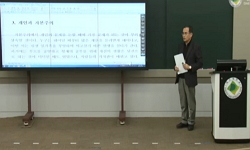- CONTENTS
- List of figures = x
- Acknowledgements = xi
- Introduction = 1
- The Problem of Eurocentrism = 4
다국어 입력
あ
ぁ
か
が
さ
ざ
た
だ
な
は
ば
ぱ
ま
や
ゃ
ら
わ
ゎ
ん
い
ぃ
き
ぎ
し
じ
ち
ぢ
に
ひ
び
ぴ
み
り
う
ぅ
く
ぐ
す
ず
つ
づ
っ
ぬ
ふ
ぶ
ぷ
む
ゆ
ゅ
る
え
ぇ
け
げ
せ
ぜ
て
で
ね
へ
べ
ぺ
め
れ
お
ぉ
こ
ご
そ
ぞ
と
ど
の
ほ
ぼ
ぽ
も
よ
ょ
ろ
を
ア
ァ
カ
サ
ザ
タ
ダ
ナ
ハ
バ
パ
マ
ヤ
ャ
ラ
ワ
ヮ
ン
イ
ィ
キ
ギ
シ
ジ
チ
ヂ
ニ
ヒ
ビ
ピ
ミ
リ
ウ
ゥ
ク
グ
ス
ズ
ツ
ヅ
ッ
ヌ
フ
ブ
プ
ム
ユ
ュ
ル
エ
ェ
ケ
ゲ
セ
ゼ
テ
デ
ヘ
ベ
ペ
メ
レ
オ
ォ
コ
ゴ
ソ
ゾ
ト
ド
ノ
ホ
ボ
ポ
モ
ヨ
ョ
ロ
ヲ
―
http://chineseinput.net/에서 pinyin(병음)방식으로 중국어를 변환할 수 있습니다.
변환된 중국어를 복사하여 사용하시면 됩니다.
예시)
- 中文 을 입력하시려면 zhongwen을 입력하시고 space를누르시면됩니다.
- 北京 을 입력하시려면 beijing을 입력하시고 space를 누르시면 됩니다.
А
Б
В
Г
Д
Е
Ё
Ж
З
И
Й
К
Л
М
Н
О
П
Р
С
Т
У
Ф
Х
Ц
Ч
Ш
Щ
Ъ
Ы
Ь
Э
Ю
Я
а
б
в
г
д
е
ё
ж
з
и
й
к
л
м
н
о
п
р
с
т
у
ф
х
ц
ч
ш
щ
ъ
ы
ь
э
ю
я
′
″
℃
Å
¢
£
¥
¤
℉
‰
$
%
F
₩
㎕
㎖
㎗
ℓ
㎘
㏄
㎣
㎤
㎥
㎦
㎙
㎚
㎛
㎜
㎝
㎞
㎟
㎠
㎡
㎢
㏊
㎍
㎎
㎏
㏏
㎈
㎉
㏈
㎧
㎨
㎰
㎱
㎲
㎳
㎴
㎵
㎶
㎷
㎸
㎹
㎀
㎁
㎂
㎃
㎄
㎺
㎻
㎽
㎾
㎿
㎐
㎑
㎒
㎓
㎔
Ω
㏀
㏁
㎊
㎋
㎌
㏖
㏅
㎭
㎮
㎯
㏛
㎩
㎪
㎫
㎬
㏝
㏐
㏓
㏃
㏉
㏜
㏆
https://www.riss.kr/link?id=M13912670
- 저자
-
발행사항
London : Pluto Press, 2015
-
발행연도
2015
-
작성언어
영어
- 주제어
-
DDC
330.12209 판사항(23)
-
ISBN
9780745335216 (Hardback)
0745335217 (Hardback)
9780745336152 (Paperback)
0745336159 (paperback)
9781783713233 (PDF)
1783713232 (PDF)
9781783713257 (Kindle)
1783713259 (Kindle)
9781783713240 (EPUB)
1783713240 (EPUB) -
자료형태
일반단행본
-
발행국(도시)
영국
-
서명/저자사항
How the West came to rule : the geopolitical origins of capitalism / Alexander Anievas and Kerem Nişancıoğlu
-
형태사항
xiii, 386 pages : illustrations, maps ; 24 cm
-
일반주기명
Includes bibliographical references (pages 283-369) and index
- 소장기관
-
0
상세조회 -
0
다운로드
부가정보
목차 (Table of Contents)
- CONTENTS
- List of figures = x
- Acknowledgements = xi
- Introduction = 1
- The Problem of Eurocentrism = 4
- Confronting the Problematic of Sociohistorical Difference = 5
- What is Capitalism? = 8
- What Is Geopolitics? = 10
- 1 The Transition Debate : Theories and Critique = 13
- Introduction = 13
- The 'Commercialisation Model' Revisited : World-Systems Analysis and the Transition to Capitalism = 14
- The Making of the Modern World-System : The Wallerstein Thesis = 14
- The Problem of Eurocentrism = 16
- The Problem of Historical Specificity = 19
- The Spatiotemporal Limits of Political Marxism = 22
- The Brenner Thesis : Explanation and Critique = 22
- The Geopolitical in the Making of Capitalism = 27
- The Political Marxist Conception of Capitalism = 29
- The Problematic of Sociohistorical Difference : Postcolonial Studies Engaging Capital = 32
- The Eurocentrism of Historicism = 33
- The Violence of Abstraction = 36
- The Lacuna of Postcolonial Theory = 39
- Conclusion = 41
- 2 Rethinking the Origins of Capitalism : The Theory of Uneven and Combined Development = 43
- Introduction = 43
- The Theory of Uneven and Combined Development : Exposition and Critiques = 44
- Unevenness = 44
- Combination = 48
- Seeing Through a Prism Darkly? Uneven and Combined Development beyond the Eurocentric Gaze = 54
- Trotsky beyond Trotsky? Uneven and Combined Development before Capitalism = 57
- More Questions than Answers : Method, Abstraction and Historicity in Marx's Thought = 58
- Modes of Production Versus Uneven and Combined Development? A False Antithesis = 61
- Conclusion : Towards an 'Internationalist Historiography' of Capitalism = 63
- 3 The Long Thirteenth Century : Structural Crisis, Conjunctural Catastrophe = 64
- Introduction = 64
- Pax Mongolica as a Vector of Uneven and Combined Development = 67
- The Nomadic Mode of Production and Uneven and Combined Development = 67
- The World-Historical Significance of the Mongol Empire = 71
- Trade, Commerce, and Socio-Economic Development under the Pax Mongolica = 73
- Apocalypse Then : The Black Death and the Crisis of Feudalism = 77
- Class Struggle and the Changing Balance of Class Forces in Europe = 79
- Peasant Differentiation in the Age of the Black Death = 81
- Development of the Productive Forces = 85
- Conclusion = 87
- 4 The Ottoman-Habsburg Rivalry over the Long Sixteenth Century = 91
- Introduction = 91
- Unevenness : A Clash of Social Reproduction = 94
- Ottoman-European Relations = 94
- The Tributary and Feudal Modes of Production : Unevenness Combined = 96
- Ottoman 'Penalties of Progressiveness' - European 'Privileges of Backwardness' = 104
- Combination : Pax Ottomana and European Trade = 106
- The Ottoman 'Whip of External Necessity' = 107
- The Breakdown of Christendom = 111
- The Ottoman Blockade and the Emergence of the Atlantic = 115
- The Ottoman Buffer and English Primitive Accumulation = 116
- Conclusion : The Ottoman Empire as a Vector of Uneven and Combined Development = 119
- 5 The Atlantic Sources of European Capitalism, Territorial Sovereignty and the Modern Self = 121
- Introduction = 121
- Imagining Europe in the Atlantic Mirror : Rethinking the Territorialised Sovereign, Self and Other = 123
- Tearing Down the Ideological Walls of Christendom : From Sacred to Secular Universalism in the Construction of the European Self and Non-European Other = 123
- Legitimising Colonialism : The Historical Sociological Foundations of Eurocentrism = 126
- Culture Wars in the Americas = 129
- The Colonial Origins of the Modern Territorialised States System = 134
- 1492 in the History of Uneven and Combined Development = 141
- The Smithian Moment : American Treasures and So-Called Primitive Accumulation = 142
- Sublating the Smithian Moment : From Smith to Marx via 'the International' = 146
- Primitive Accumulation Proper : From 'Simple' to 'Expanded' Reproduction = 148
- The Uneven and Combined Development of Plantation Slavery = 152
- The Sociological Unevenness of the Atlantic = 153
- Sociological Combination in the Plantation System = 158
- New World Slavery and the Rise of Industrial Capitalism = 162
- Contributions to the Sphere of Circulation = 163
- Contributions to the Sphere of Production = 166
- Conclusion : Colonies, Merchants and the Transition to Capitalism = 168
- 6 The 'Classical' Bourgeois Revolutions in the History of Uneven and Combined Development = 174
- Introduction = 174
- The Concept of Bourgeois Revolution = 177
- Reconceptualising Bourgeois Revolutions : A Consequentialist Approach = 177
- Reconstructing Consequentialism through Uneven and Combined Development = 179
- The Origins of Capitalism and the Bourgeois Revolution in the Low Countries = 180
- The Rise of Dutch Capitalism : An International Perspective = 180
- The Making of the Dutch Revolt = 185
- The English Revolution in the History of Uneven and Combined Development = 190
- Rediscovering the English Revolution = 190
- Social Forces in the Making of the British Revolution = 193
- 1789 in the History of Uneven and Combined Development = 198
- Peculiarities of the French Revolution? = 198
- Capitalism and the Absolutist State in France = 199
- The Origins of the Capitalist Revolution in France = 205
- Capitalist Consequences of the French Revolution = 210
- Conclusion = 213
- 7 Combined Encounters : Dutch Colonisation in Southeast Asia and the Contradictions of 'Free Labour' = 215
- Introduction = 215
- The Specificity and Limits of Dutch Capitalism = 222
- Dutch Institutional Innovations = 222
- The Limits of Dutch 'Domestic' Capitalism = 225
- Unevenness and Combination in the Pre-Colonial Indian Ocean Littoral = 228
- The Intersocietal System of the Indian Ocean = 228
- South Asia beyond the Eurocentric Gaze = 230
- The Dutch Encounter : A Policy of Combination = 231
- The Specificities and 'Success' of Dutch Strategies of Integration and Domination in Southeast Asia = 231
- The Moluccas = 235
- The Banda Islands = 238
- Indian Textiles = 240
- Conclusion = 242
- 8 Origins of the Great Divergence over the Longue Durée : Rethinking the 'Rise of the West' = 245
- Introduction = 245
- Rethinking the 'Rise of the West' : Advances and Impasses in the Revisionist Challenge = 247
- Points of Agreement : European 'Backwardness' and the Role of the Colonies = 247
- Late and Lucky : Contingences, the Eurasian Homogeneity Thesis, and the Great Divergence = 248
- Structure and Conjuncture in the 'Rise of the West' = 251
- The Geopolitical Competition Model and Its Limits = 251
- Feudalism, Merchants, and the European States System in the Transition to Capitalism = 254
- Unevenness Combined : North-South Interactions in the 'Rise of the West' = 258
- The Conjunctural Moment of 'Overtaking' : Britain's Colonisation of India = 261
- The Significance of India's Colonisation to the 'Rise of the West' = 261
- The Mughal Empire and the Tributary Mode of Production = 263
- The Imperial Revenue System and Agricultural Decline in the Mughal Empire = 265
- European Trade and Colonial Conquest : Towards 1757 = 269
- Conclusion = 272
- Conclusion = 274
- Notes = 283
- Index = 371















